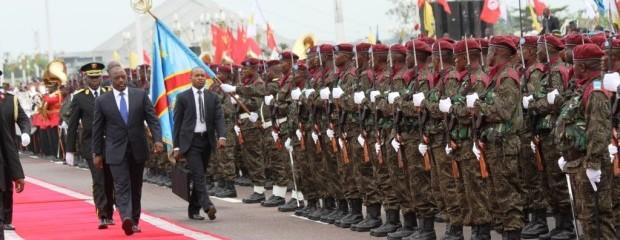Without an operable peace agreement, what effect will 1769 really have on Darfur’s future?
(Posted on behalf of Paul Kirby)
First, how sensible is sending 26,000 troops to ‘peacekeep’ when there is no peace agreement? Is there a serious chance of this inflaming the situation and sucking in UN/AU troops? Or should we suspect that they won’t deploy due to delaying tactics?
Second, now that the political noise has been made enough to get a resolution passed is it best if high-level decision-makers forget about the issue? I am thinking principly here about unnecessary meddling and displays of force to show that ‘something is being done’, even if the most intense period of suffering appears to be over. I was at a talk last Thursday with Margie Buchanan-Smith and one of the recent UNEP report authors at the ODI and Margie in particular talked in a non-specific way about fears that the ‘grand game’ would ultimately hurt humanitarian aid efforts. Are such fears justified? And where does a meaningful peace process fit in to all this?
For reports by the United Nations Environment Programme in the Sudan
For reports by the Overseas Development Institute
For “Conflict, camps, and coercion: the ongoing livelihoods crisis in Darfur” by Margie Buchanan-Smith and Susanne Jaspers in Disasters






Paul raises two important points. On the first, all the peacekeeping professionals have long insisted that a sound peace agreement should precede the despatch of peacekeepers. The kinds of tasks mapped out for UNAMID in Resolution 1769 are difficult enough at the best of times and in the middle of ongoing hostilities they are all-but-impossible. The “responsibility to protect” is a fine principle but no-one has quite figured out how it should operate in practice, short of launching a war. One of the reasons for the UN’s caution on this is that once an international force gets involved in fighting, almost for sure it gets dragged into the conflict and then becomes part of the problem, not part of the solution. This is what happened in Mogadishu. For these reasons, the UN is hoping that the peace process recently launched will come to a successful conclusion before UNAMID is fully deployed.
Your second question is also a good one. In earlier postings, we have debated whether things really are “getting worse” in Darfur and the implications of doing something dramatic (like a no-fly zone). A general rule is, when Darfur becomes the battleground for a clash of principles, then the rhetorical confrontation makes it harder to identify the right thing to do, get agreement upon it, and do it. The particular challenge we face in Sudan is that the kinds of real progress achieved are rarely if ever enough to satisfy many activists, so that western governments are under constant pressure to move the finishing line. In turn this undermines confidence in what has actually been achieved and makes implementation more difficult.